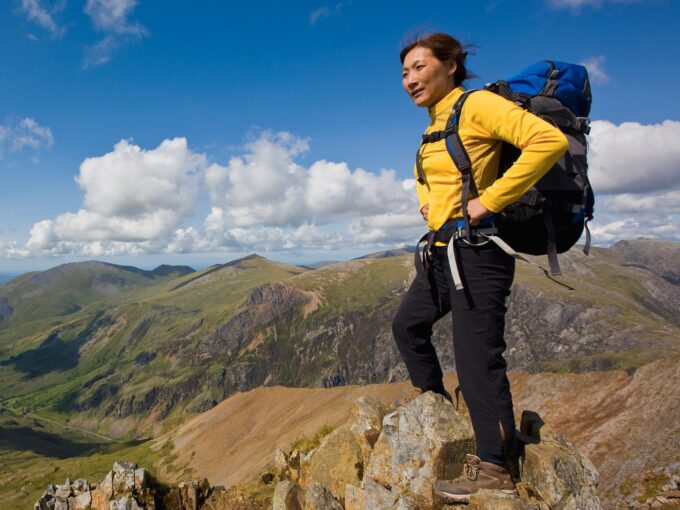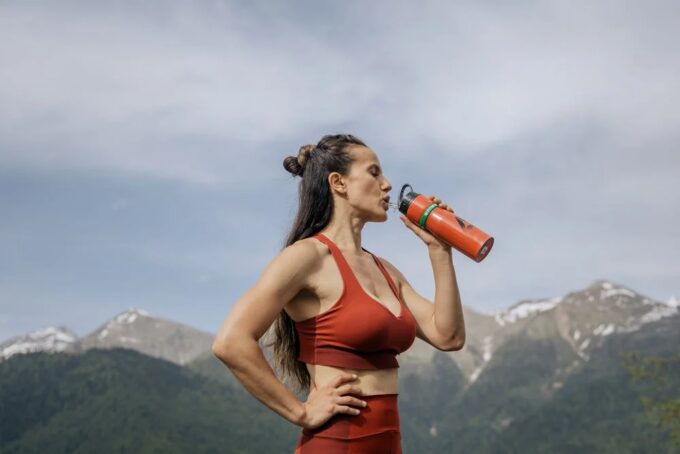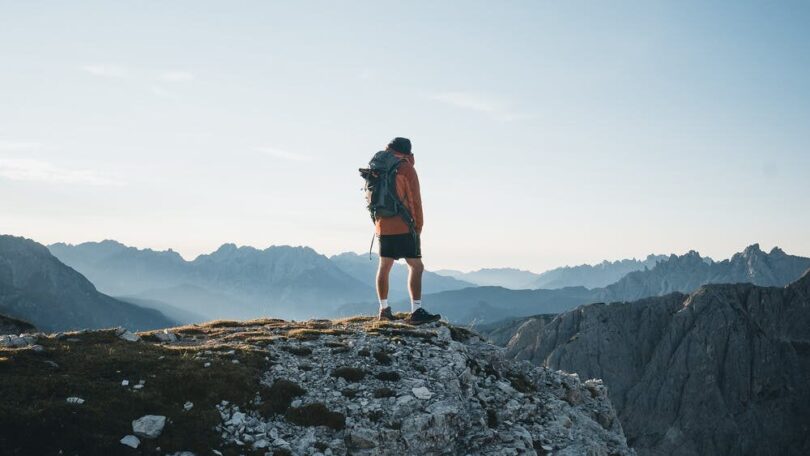Hiking is an activity that has rapidly gained popularity in recent years. More people are realizing the benefits of spending time outdoors, not only for leisure but also to maintain general health and fitness levels. A hike can be a challenging, exhilarating experience, however, there can also be some downsides to hiking, like dehydration. Here is how to prevent it.
1. Use A Hydration Pack
People who enjoy hiking can sometimes forget to take enough fluids with them when they set out on the trail. It is important for hikers to make sure that they are fully hydrated before embarking on their trip. One of the most useful pieces of advice on how to prevent dehydration while hiking is to use a hydration pack, which allows people to drink water without having to stop every few minutes. When deciding which hydration pack is best for them, it is essential for hikers to find one that fits well and doesn’t hinder movement in any way. You can go to besthydrationpack.org and see some top-rated hydration packs before you pick one. There are quite a few benefits associated with using a hydration pack. They are very lightweight, which means that they won’t be cumbersome to wear during the hike. Hikers can also carry enough water with them in their hydration packs for the whole trip, meaning that they won’t need to stop at streams or rivers along the trails to refill their bottles.
2. Drink Plenty Of Fluids
People who want to avoid dehydration should make sure that they drink plenty of fluids before and during their hiking trip. This is true even for people who drink plenty of liquids every day, as the hiking trail can provide an excellent opportunity for excess fluid loss. While different individuals have different needs when it comes to adequate fluid intake, it is important to remember that there are a few general guidelines that apply to everyone: start the hike fully hydrated and carry extra water with you in case you need it at any point along the trail. It is also a good idea to bring electrolyte mixes such as Gatorade along on hikes, especially if they are long. This can help to replenish electrolytes that are lost due to sweating during exercise, allowing for proper fluid balance. Some people think that drinking plain water is better than electrolyte mixes, however, this isn’t actually the case. Electrolytes are vital for proper hydration, and they need to be replaced in order to avoid becoming dehydrated during a hike.
3. Wear The Right Clothes

Source: self.com
One of the most significant items for hikers to wear when they are out on the trail is suitable clothing for their hike. People should remember that there is a wide range of temperatures while hiking in different seasons and weather conditions. Hikers also need to be prepared if it starts raining or snowing unexpectedly while they are at higher elevations, where temperatures tend to be colder than lower ones. Wearing the right clothes while hiking not only helps hikers stay comfortable, but can also prevent dehydration by preventing excessive sweating due to wearing too many layers. When people go on hikes in hot weather, they should always bring plenty of sunscreen with them because sunburn can severely affect hydration levels. Hikers can also enjoy the benefits of cooling off more quickly if they are properly dressed for their hike. It is important that hikers dress in layers so that they can remove or add clothing as necessary along the journey, especially during cold weather hikes where temperatures tend to drop at higher elevations. When you’re out on a longer hike, it’s also a good idea to bring one extra layer in case the weather changes suddenly.
4. Know The Signs Of Dehydration
There are some definite warning signs of dehydration, and it is important for hikers to familiarize themselves with them before embarking on their outdoor adventure. It is also possible for older people who do not drink enough water on a daily basis to experience more severe symptoms when they get dehydrated while hiking. These people should be sure to stay fully hydrated before heading out into harsher weather conditions in order to avoid problems like heat stroke or heat exhaustion. It is also important for people who are not used to being exposed to hot weather conditions to take care of themselves when they hike during the summer. It is also important to note that it can be easy to not realize when you are becoming dehydrated during the course of hiking. Some people become what is known as “clue challenged” in terms of dehydration because they don’t feel any symptoms until their condition becomes more severe. When water intake is low, cells within the body begin to shrivel up and pull water from other parts of the body in order to keep themselves alive.
5. Don’t Drink Water From Just Anywhere
While it might be tempting to drink from a fresh stream while hiking, it is important to remember that water that comes from natural sources should not be consumed without proper purification. Some hikers are tempted to do this because they get thirsty and don’t see any people or man-made structures in sight. However, clean water can usually only be found in developed areas where local officials have set up places for people to obtain potable drinking water. Hikers should also avoid drinking water directly from lakes and ponds in order to reduce the chances of ingesting harmful bacteria or parasites which can cause illness when ingested into the body. Hikers should also remember that consuming alcohol before or during a hiking trip can increase dehydration levels due to its diuretic properties, which encourage urination after consumption. Dehydration is not only dangerous, but it can also be painful, making it important for hikers to keep themselves properly hydrated on the trail and avoid alcohol.

Source: pexels.com
Hiking is a popular outdoor activity enjoyed by many people. Every year, thousands of hikers go on day hikes and longer trails to enjoy the beauty of nature and exercise their bodies. But, if you’re hiking and not staying properly hydrated, you can cause serious health problems that can ruin even the best-planned hike. So, the next time you hit the trail, follow these simple tips to stay healthy and hydrated, so you can return home safely!







